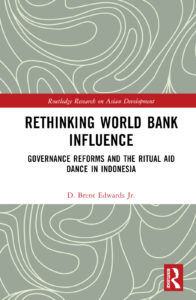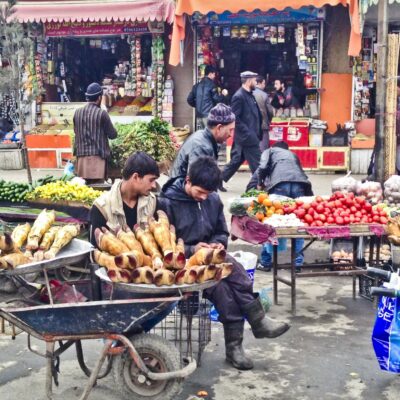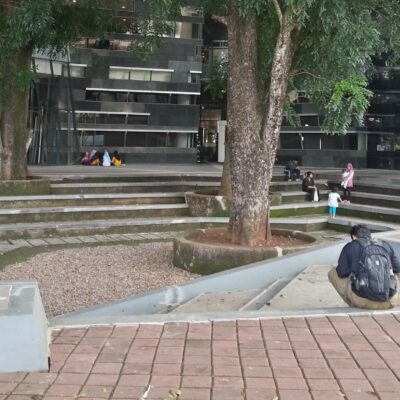
The World Bank is one of the world’s most important international development organisations and has been particularly active in the social policy space. It provides more development finance to governments in developing countries than any other international provider and, in its role as a ‘Knowledge Bank’, authoritative development policy advice as well. It is also one of the most widely criticised international development organisations in the world. The Bank, it has been argued, is dominated in its decision-making by a few rich countries, especially the US; recommends the wrong ‘economic medicine’; is secretive and unaccountable; and has become involved in activities that go well beyond its original mission/core competencies.
At the heart of these concerns is a sense that the Bank is an all-powerful institution that pursues a narrow political and ideological agenda serving the interests of Western governments and corporations rather than those of developing countries and especially the poor and marginalised in these countries. As international development experts Susan George and Fabrizio Sabelli observed some time ago: ‘Some critics have approached the World Bank as a kind of quintessential Evil Empire, imposing its projects in the teeth of public opinion, the local inhabitants’ wishes and, sometimes, the Bank’s own experts’ advice.’
Rethinking World Bank Influence, authored by D. Brent Edwards Jr. from the University of Hawaii and collaborators Inga Storen, Marilyn Hillarious, Mark McCormick, and Dewi Setiani seeks to provide a partial corrective to this view. It accepts the notion ‘that the World Bank is primarily an ideological institution which encourages a market-based approach to development.’ It also accepts that the Bank’s policy agenda and actions are informed by specific politico-economic interests. However, it challenges the idea that the Bank is all-powerful and effective in pursuing its agenda. Rather, it suggests, the Bank more commonly fails than succeeds in trying to precipitate change because it runs up against serious obstacles to the adoption and implementation of its preferred policies and programs at the country and, especially, the local level. These obstacles emanate from the different cultural and political logics that underpin local and national political and social institutions to those embodied in the neoliberal prescriptions of the Bank.
Edwards and his collaborators use the notion of a ‘ritual aid dance’ to capture how the Bank is commonly frustrated in pursuing its agenda. A ritual aid dance is a situation in which ‘each actor plays a part but does not (and cannot) acknowledge the ways that it depends on—or at least uses—the other for its own gain’. Donor-recipient relations fit this pattern of interaction, they argue, because recipient countries can play along with donor rules ‘to gain access to funding and other forms of support but without changing [their] ways of operating significantly, if at all’. At the same time, donors can engage ‘in symbolic and standardized behavior related to the processes of generating and renewing projects, even while being fully aware that significant portions of the funding provided are diverted for unintended (read: corrupt) purposes.’ Moreover, donor-recipient relations do not typically lead anywhere, just like a dance. Rather than meaningful policy or institutional reform, donor-recipient interaction usually results in achievement of the status quo.
To substantiate and flesh out this argument, Edwards and his collaborators examine the World Bank’s role in promoting governance reform in Indonesia in recent decades, focusing on reforms accompanying decentralisation in the country’s education sector such as school-based management, local content curricula, and provision of school grants. Indonesia has been one of the Bank’s largest borrowers. Nevertheless, Edwards and his collaborators argue that Indonesia’s size and complexity combined with
‘.. multiple and intractable layers of cultural logics and practices—have thwarted the World Bank’s purported efforts to turn Indonesia into a governance state, that is, one guided by efficiency, accountability, and effectiveness. Far from turning Indonesia into a governance state, evidence suggests that the World Bank and the Government of Indonesia are simply going through the motions, dancing with one another in order to keep up the façade of earnest efforts to engage in “development.”’
With regards to education decentralisation specifically, Edwards and his collaborators point to a range of phemonena that have served to undermine decentralisation, a major shift in governance championed by the Bank, and realisation of its presumed benefits. These include reluctance on the part of the central government to surrender control, hesitation at the local level to take the initiative in promoting change, the failure of accountability mechanisms to operate effectively at the local level, continued school dependence on local education agencies, and reinforcement of local dependence through education financing mechanisms.
On this basis, Edwards and his collaborators contend that a new approach to development is needed, one grounded in stronger theories of change than those producing the ritual aid dance. Specifically, they argue that:
‘.. it is necessary to advance past diagnoses of technical solutions and to engage rather in critical (self-)reflection and analysis related to the historical and political-economic roots of the cultural “problems” that prevent development programs from working as intended. In so doing, those involved in development would be forced to grapple not only with their own role and contributions but also with the complicated ways in which pre- and postcolonial traditions, forces, logics, and ways of being have intersected and continue to evolve in a context of economic globalization. Only then might efforts at social change be in a place to admit, first, that the prevailing approaches to development are not working and second that alternative paradigms need to be explored—alternatives that decenter and challenge the perspectives, practices, and programs of both the World Bank and modern state apparatuses.’
On the whole, Rethinking World Bank Influence is a welcome addition to the literature. In pointing to the World Bank’s weaknesses as a political actor, particularly in the face of powerful entrenched interests and competing logics at the national and local levels, it offers a more nuanced account of that organisation’s role in development than is available in much of the literature. Such an account is particularly needed in the comparative and international education literature where views on the World Bank’s role in the Global South have fluctuated between those emphasising the Bank’s modernising role and ones viewing it in ‘Evil Empire’ terms. The book’s recommendation for a new approach to development grounded in an appreciation of competing national and local logics is similarly welcome, reinforcing recent political economy analyses which have similarly emphasised a need to ‘work with the grain’.
In my view the book’s analysis would have been strengthened by consideration of a wider range of education policy cases, some of which demonstrate the World Bank’s dilemmas in promoting change in Indonesia even better than the decentralisation-related cases on which the book focuses. These cases include failed attempts to promote institutional autonomy at schools and universities, efforts to build teacher pedagogical skills and subject knowledge through a teacher certification scheme, and teacher redistribution. In these cases, the World Bank was a crucial part of a coalition of actors and interests that sought unsuccessfully to promote reform in line with neoliberal principles. It was unsuccessful because predatory, popular and progressive interests mobilised against reform, lobbying parliament to overturn policy changes, taking legal action to annul legislation, and internal undermining of reform implementation.
The book would also have benefitted from more original empirical work on the education sector—the cases are constructed largely on the basis of a literature survey—and greater use of Indonesian language sources, particularly analyses and reports related to the politics of education. There is a significant secondary Indonesian language literature by Indonesian scholars, public intellectuals, and NGO activists that could have been harnessed to support the analysis. Diving deeper empirically through an expanded range of cases and the use of Indonesian language sources would have helped to flesh out the nature of the competing national and local logics said to be so important in shaping outcomes but discussed mainly in the abstract.
However, these are modest criticisms of a book that makes an important contribution to our understanding of the Bank’s role in the politics of governance reform in the Global South, especially in the education sector.
Image: The World Bank Group Headquarters in Washington DC. Credit: Shiny Things – Flickr, CC BY 2.0.




